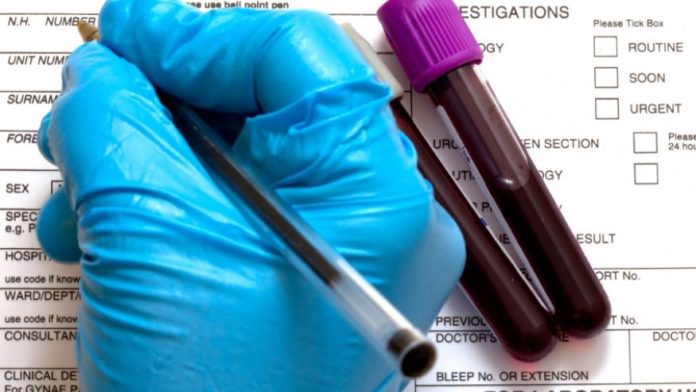
Viruses are everywhere. The average U.S. adult is infected with two to three cold viruses annually, and children can catch up to eight or ten in that same time period. That’s not even touching on other viral illnesses like hepatitis C, herpes simplex, and human papillomavirus, which silently infect millions of people each year without ever causing symptoms.
Even if you don’t remember every time you’ve come down with a virus, your immune system does—it has special antibodies to combat those viruses should they ever return. Now, researchers have developed a quick, inexpensive method called VirScan that can detect the viruses currently infecting a patient as well as those with which she was infected in the past, all from a tiny sample of blood. VirScan could help researchers better understand how the body combats viruses and virus’ lasting effects, a development that could lead to earlier detection of conditions, such as hepatitis C, and eventually help explain what triggers certain autoimmune diseases and cancers. The researchers published an article outlining their method in the journal Science.
To see if a patient has ever been infected by a particular virus, researchers expose antibodies in the patient’s blood to molecules with the virus’ molecular signature. In the past, researchers could only check a sample for reactions of one type of antibody at a time. But thanks to Next Generation genetic sequencing, researchers can use VirScan to look for hundreds of antibody reactions at once.
The researchers tested VirScan on samples from almost 600 individuals from the United States, Thailand, Peru, and South Africa. After observing over 100 million antibody reactions, the researchers determined that most people had been exposed to about 10 viruses on average, though a few had antibodies for 84 different viruses.
Interestingly, the researchers also uncovered that the immune system sometimes deploys the same antibodies for different viruses that may look similar or may tailor a sort of universal antibody to block a specific virus. With a bit more tweaking, the researchers hope that VirScan can be used to quickly detect bacteria and fungi to shed more light on the microbiome.
Stephen Elledge of Brigham and Women’s Hospital and Harvard Medical School, who led the research said the test “allows scientists to ask questions that just couldn’t be asked before.”
For example, he said, by comparing viral histories of different groups of people, the test would give doctors the option to observe what role, if any, viruses play in exacerbating common conditions such as diabetes — essentially allowing us to make the connection between past infections and current illnesses within a population.
